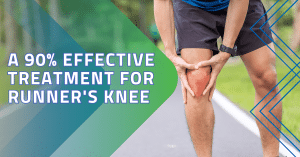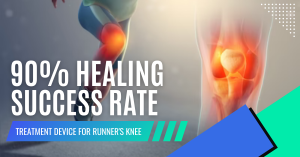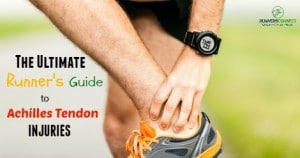Antibiotics are a quick fix for many physical ailments, but it is important that athletes think carefully about anything they put into their bodies during training and especially before a big competition.
In fact, let me share a short personal story with you to illustrate how antibiotics can unknowingly impact performance.
One of my personal athletes, Debra Hexsel, was training for the Boston marathon.
Training was going really well and we both felt she was in fantastic shape and ready to run a strong race and likely PR.
As I followed all the RunnersConnect athletes via the race tracker (we had 31 athletes running, so it was quite the day!) I noticed Debra was really struggling – and early.
I knew she was in better shape than this, so I was really concerned everything was ok. As a coach, you learn to spot the differences between a tough day or not being fit and “something is just not right here”.
This was one of those latter feelings.
After the race was over, I was in touch with Debra to see what happened, and she mentioned she suffered from major cramps and really struggled, almost from the start. So, I immediately began the typical coach’s Spanish inquisition to uncover the root cause.
After a few prodding questions, I learned Debra had taken antibiotics just a few days before the race.
From research, I knew antibiotics can have a major negative impact on race performance. But, I think many runners, like Debra, assume antibiotics are good and aren’t connected to running performance. After all, they fight infections, right? What’s bad about that?
With that story in mind, I want to educate all runners a bit more about how antibiotics impact your running so you can avoid the above scenario happening to you.
Antibiotics and running performance
Antibiotics work against bacterial infections such as strep throat, ear infections, bladder infections as well as many types of skin infections.
The work “Antibiotic” is derived from the Greek word anti meaning “against” and bios meaning “life” the medicine works by destroying the growth of bacteria.
Antibiotics work in two primary ways:
- Bactericidal antibiotics kill bacteria. Penicillin is a very common bactericidal and interferes with the cell wall formation of the bacteria or the contents within the bacterium’s cell.
- Bacteriostatic antibiotics prevent the bacteria from multiplying.
Essentially, antibiotics create a war within your body that can seriously affect your running performance. During a long distance race, you need your body to be firing on all cylinders.
If your body is using a lot of its “fighting” power to deal with antibiotics in your system, there are a few symptoms that you can expect to show up in your athletic performance.
Symptom #1: Increased sensitivity to heat/dehydration:
The sulfa-based class of antibiotics add a heightened possibility of increased sun sensitivity.
Given the fact that most endurance events in general and marathons in particular are raced outdoors, on city streets, often with very little cloud cover, this can be a recipe for disaster.
Sunburn and other heat-related health concerns are already high in an outdoor event that takes several hours to complete, but are often increased by the use of sulfa-based antibiotics.
Heat exhaustion, heat stress, and heat stroke are less common but far more dangerous potential consequences of increased sun sensitivity.
A sensible recommendation for athletes on antibiotics is a reduced amount of intensity and volume of exercise as well as increased fluid intake and sun protection.
With the nature of the marathon itself, a notoriously grueling, almost always dehydrating, 26.2 mile event of both incredible volume and intensity, it is almost certain those runners who choose to race a marathon while on antibiotics must take extra precaution and expect significant pace differences.
It is incredibly difficult for a healthy, fit athlete to hydrate properly during a marathon and that difficulty is compounded for the athlete racing while on antibiotics.
Symptom #2: Slower pace
Runners, cyclists, and other endurance athletes alike have reported slower training and racing paces while on antibiotics.
When antibiotics are taken for an illness rather than a skin infection, athletes may blame the decrease in pace (or increase in effort at the same pace) on the illness rather than the antibiotic.
However, even athletes taking antibiotics for an infection of the skin have reported slower racing and training paces.
It is certainly true, however, that certain illnesses may contribute to poor training and racing paces as well.
Another fallacy is assuming that athletes simply “talk themselves out of” running fast while on antibiotics because they expect times to be slower.
A simple example that debunks this theory is the famous story of a horseback rider who reported a 10mph pacing difference for a horse who had been taking antibiotics to clear up a skin rash on his belly.
The horse who normally cantered a morning run at about 25mph dropped instantly to 15mph on the same loop, with the same perceived effort, while on antibiotics.
This disproves the idea that poor racing and training on antibiotics is a mental weakness, as the horse was not aware that he was taking antibiotics.
Symptom #3: Dizziness and stomach upset
Many antibiotics cause diarrhea and stomach upset due to bacterial changes in the intestines and stomach. As the normal bacteria levels in the body are changing, the body’s balance is compromised.
Diarrhea is not only annoying during an endurance event, it can also be dangerous as much more water is lost during diarrhea rather than solid bowel movements. Probiotics, as found in yogurt with live cultures, can help reduce the risk of diarrhea that is caused by the use of antibiotics.
As fluid is lost through sweating associated with increased sun-sensitivity and diarrhea, dizziness and fainting may occur for the endurance athlete, as well as muscle cramping, fatigue, and headache.
These issues are most often seen within the first 2-3 days after starting the use of the antibiotic, but can last much longer in some cases, particularly for athletes.
Symptom #4: Tendon rupture:
One of the common side affects of certain antibiotics is tendon rupture. The class of antibiotics that tendon rupture is associated with is called Fluoroquinolones, one of which is the commonly used antibiotic Levaquin.
The issues associated with this type of antibiotic range from pain and discomfort in the tendon to complete tears.
Though tendons are most often torn during sprinting and jumping events, long distance runners taking this type of antibiotic should either avoid exercise if it is absolutely necessary to be on the antibiotic, or switch to a different type of antibiotic.
In either case, communication with a doctor and self-research into the topic are absolutely vital.
What if you have no choice but to race while on antibiotics?
If the use of antibiotics is absolutely necessary and you have no intention of giving up a special goal race:
- Make sure you communicate with your coach, your doctor and your support team out on the course:
- Your coach may recommend that you decrease your training load by about 25%, but ultimately, the decision to continue training and/or racing is up to you and your doctor.
- It is important to have a support crew on race day that can provide you with the extra water, electrolytes and sun protection you may need.
- Consider keeping a journal as you move closer to race day. Tracking your fatigue levels and hydration needs during your training runs may help to give you a good picture about what to expect on race day.
I hope Debra’s story and this research and these recommendations can help you plan and adapt your training and racing should you need to take antibiotics.








6 Responses
Do you know what other vitamins, supplements, prescriptions a runner could be taking that could ALSO negatively effect performance or endurance…know that’s a wide list but any insight? Thanks.
Do you know what i can do to eliminate cramps during a marathon? Typically the cramp occurs at 35 km marks. What should i do or eat so as to maintain my race or optimal pave to finish the marathon strong? Thanks
Thank for this article…i’ve now just realised why i’ve been running so slow this last few weeks as i’ve undergone treatment for a tooth absys and 2 types of antibiotics amoxycillin and another much stronger one which gave me an upset stomach too…pace has reduced by 30s to 1min per mile and couldn’t figure it out at first…off them now so hope to get back up to pace shortly 😉
Really useful piece. I am like Steve above and had a Wisdom tooth infection which I was given Amoxycillin for. I have noticed a drop off in pace and a huge increase in effort and Heart rate.
However, I have now been off the meds for a week and still suffering… any advice on how long the effects last?
Hi Nathan, sorry to hear you are still struggling a little after the Amoxycillin. Give it another week as it may take up to 2 weeks to leave the system, especially if you had to take the full dosage. You should start to notice feeling a little better each day. Keep us posted, and check with a doctor if you would rather know for sure. Hope this helps!
Very helpful article! I just went for a run yesterday and felt AWFUL; seems like it must be related to the Ceftin I have been taking for an infection .
Unfortunately, I am 10 days our from race day (marathon) and hoping to fair better than the runner in the story above. If I load my diet with any extreme amount of probiotics (kimchi, sauercraut, kiefer, etc) do I have any hope of healing my gut enough that it doesn’t affect my performance on race day? Or should I consider not racing and finding another race a month out?
For context, I was on antibiotics for four days and am now 10 days out from my race.